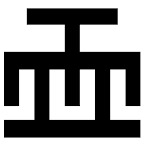,

After several years of making dictionaries the hard way we received a gift: KWL, a simple but powerful tool that allowed us to scale up dictionary-making.
The problem KWL solves can simply be described with example questions we had been receiving from our dictionary users:
- what is the Akan word for chemistry?
- what does shitɔ mean in English?
- how can I explain democracy to my grandmother in Ewe?
In other words, how can you translate a particular idea which is represented by 1 word in Language A into Language B which does not have a single word?
With KWL, the solution to this problem became easy.
We started converting all of our dictionary-building to use KWL in 2016. From 2016 till 2020 we have been able to build 1000-word dictionaries for 30+ languages. In the previous 5 years, we were able to build dictionaries for 5 languages.
Best of all, anyone can help us build a dictionary for their language faster just by learning how to translate words in their language to KWL in 1 hour. Once a dictionary for a new language is built with KWL, we can make bilingual dictionaries with any other language immediately. Here is a sample KWL spreadsheet that translates 2 French words into KWL:
nom:dog chien nom.2 nom:woman femme nom.1
KWL helps us to achieve our mission of connecting for results, every day.
